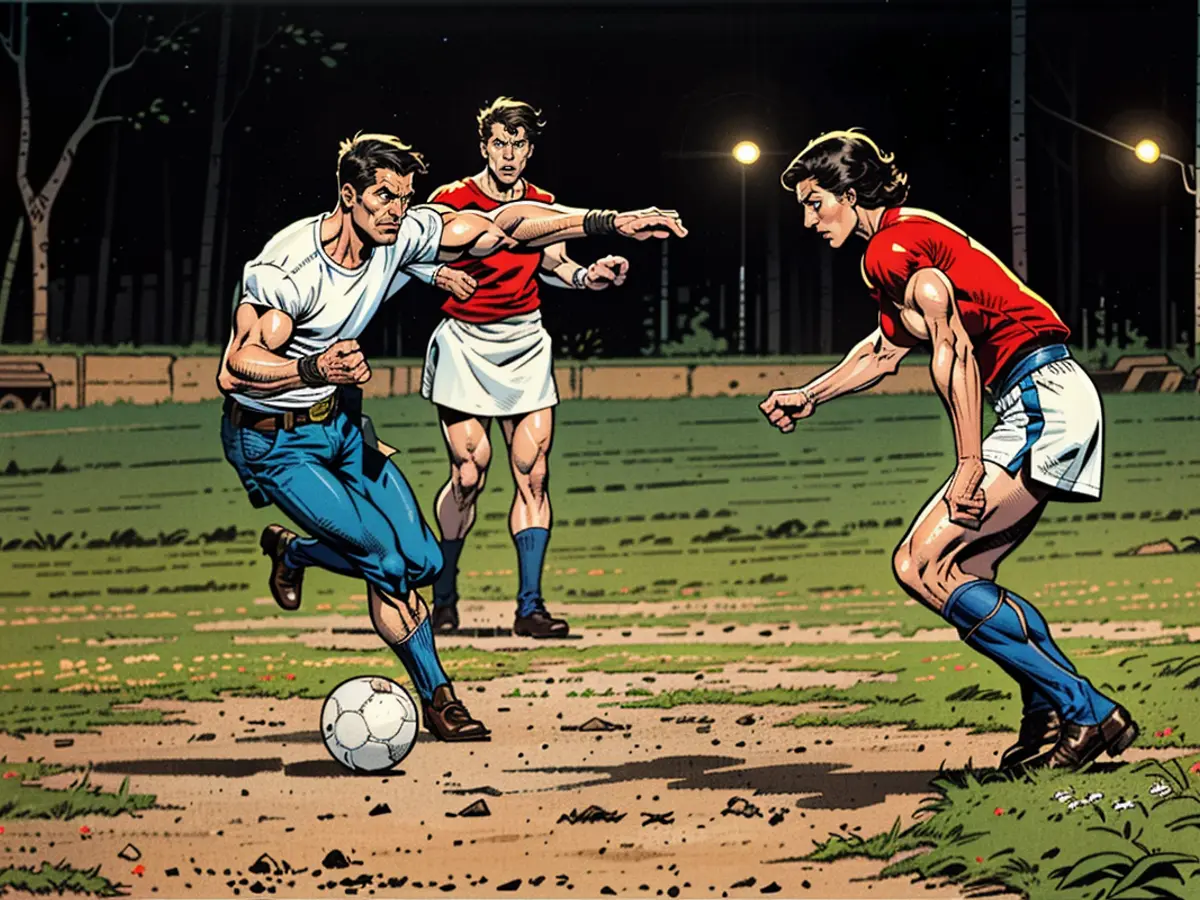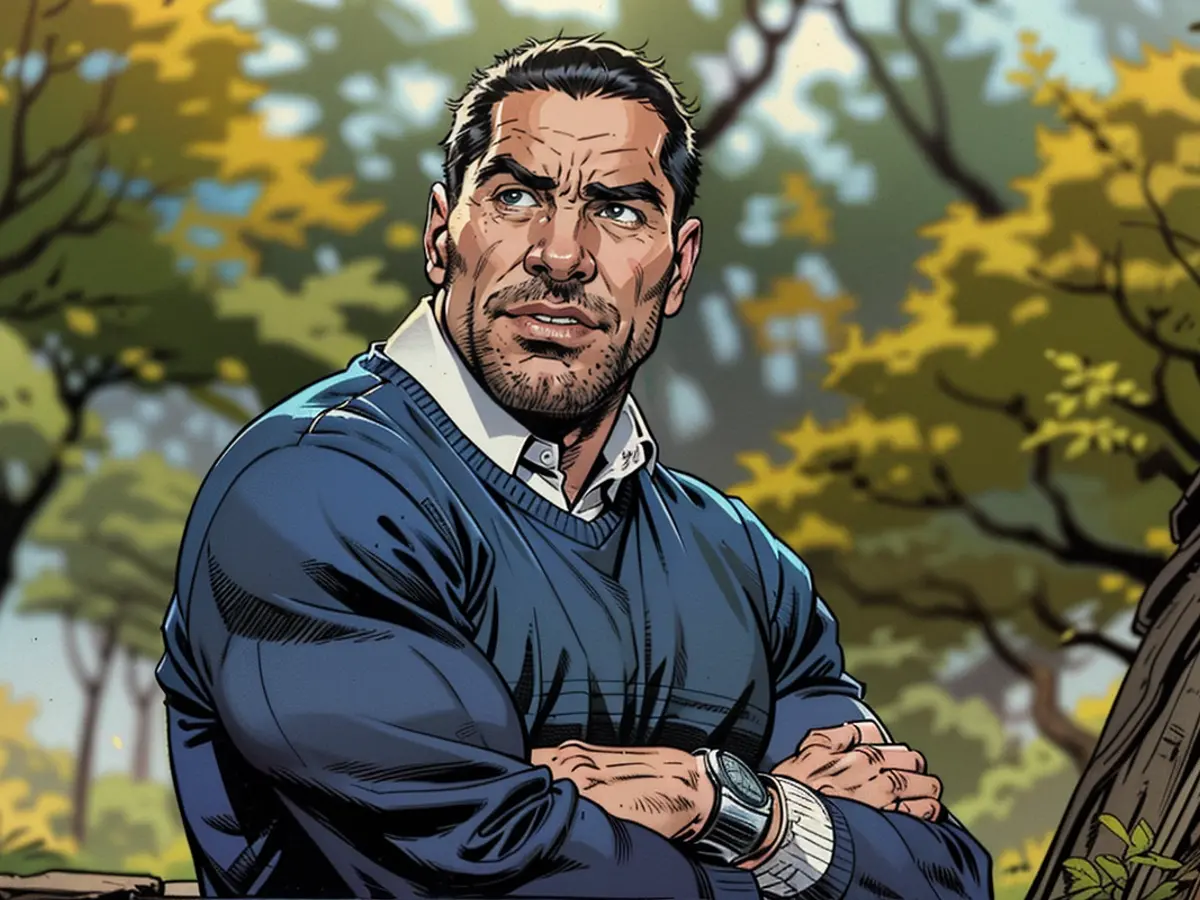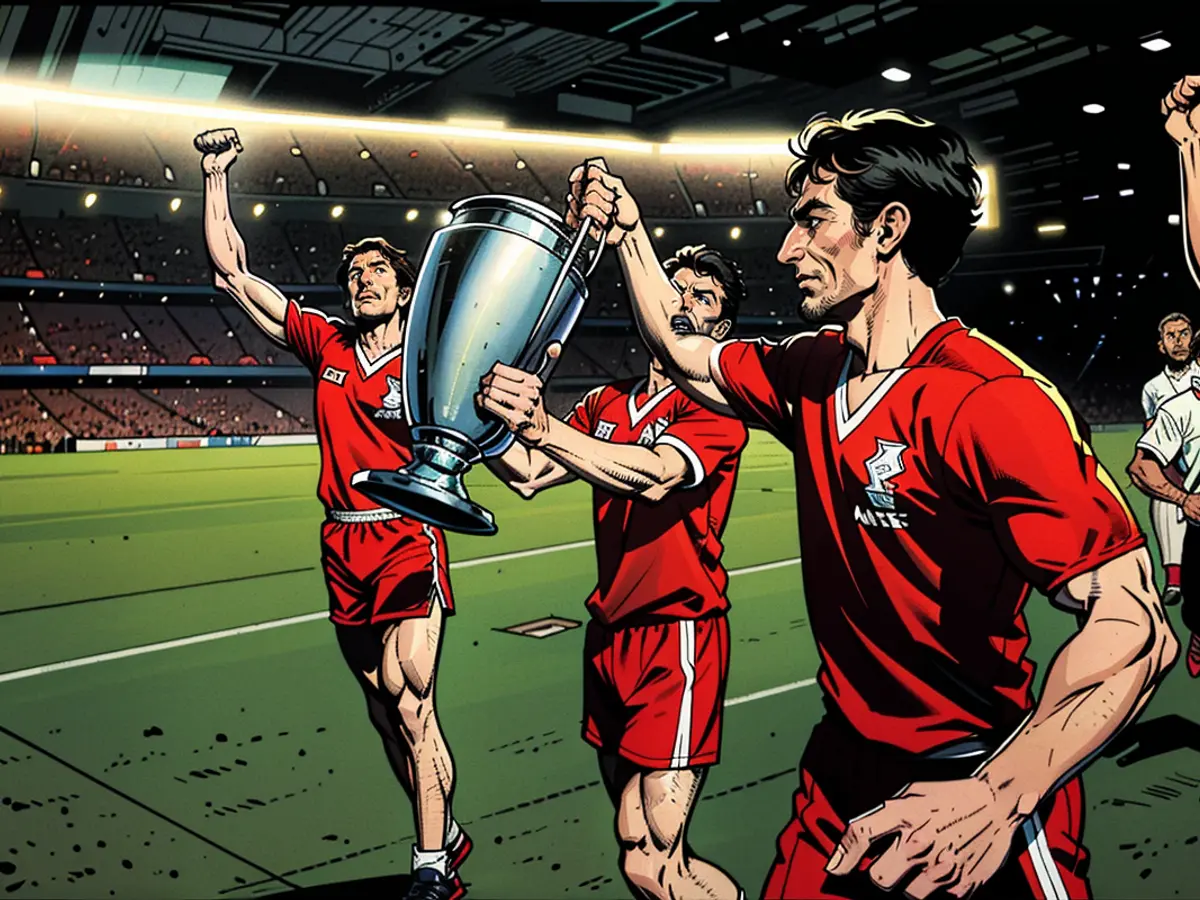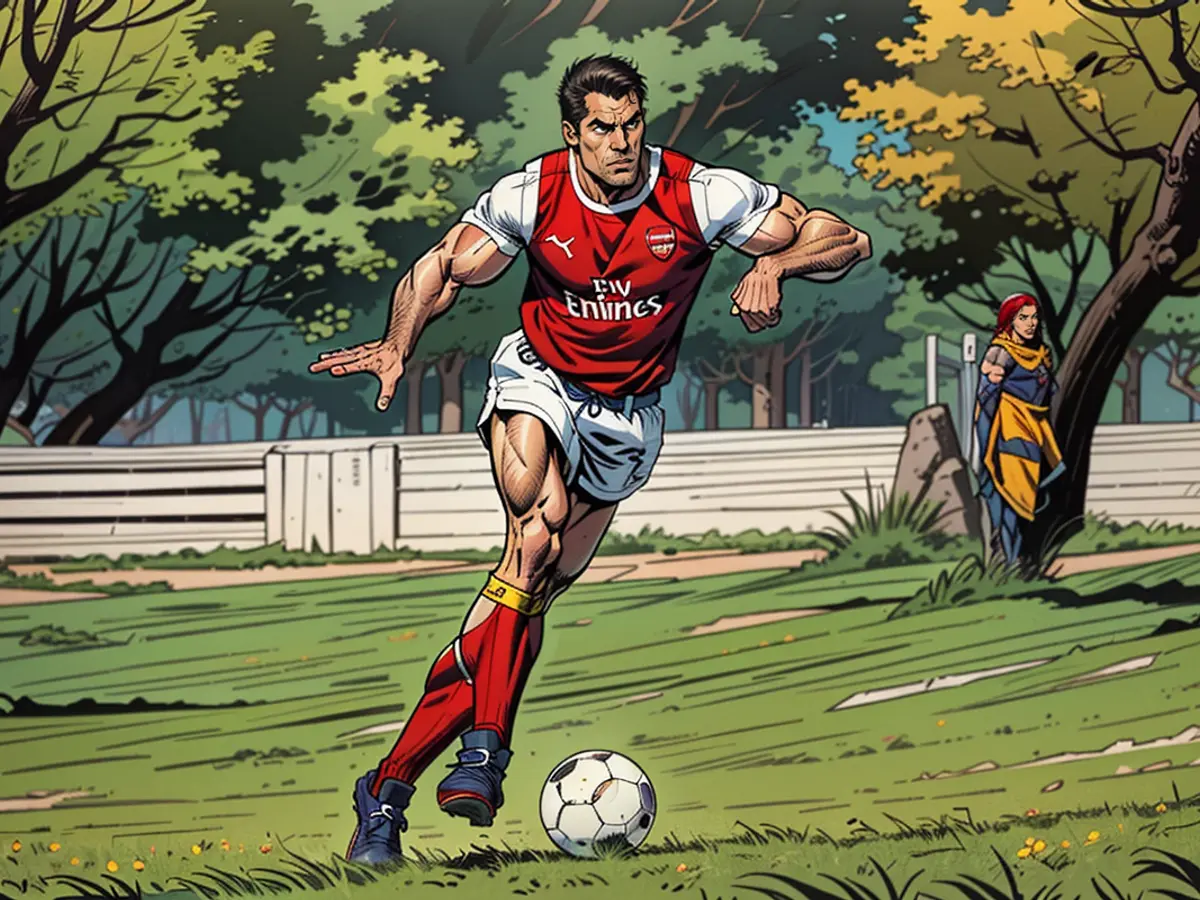Being the first Black football player for England was a significant and substantial milestone, according to Viv Anderson.
The persistent frost, as hard as concrete in certain areas of the field, prompted England's players to wear rubber-soled cleats instead of metal studs during parts of the match. Despite the awful conditions, the match proceeded as planned, and after 90 minutes of subpar soccer, England emerged victorious over Czechoslovakia 1-0 at Wembley Stadium.
However, what truly mattered was that Anderson became the first Black player to represent the England national team, an accomplishment he still cherishes more than four decades later.
"It was a significant deal at the time," Anderson tells CNN Sport. "I'm incredibly grateful and pleased to be the first; to be the first at anything is a remarkable achievement, I believe."
In the days leading up to his Wembley debut, reporters were already interviewing his parents, teachers, and childhood coaches, eagerly awaiting the then-22-year-old's historic England appearance.
Though Black players had previously represented England at the youth level, Anderson, whose parents emigrated from Jamaica as part of the Windrush generation, was the first to make an appearance for the senior team. He even received telegrams from Queen Elizabeth II and Elton John to celebrate his achievement.
However, for the young player on the verge of earning his first of 30 England caps, it was crucial to ignore the fanfare surrounding his groundbreaking debut.
"You go into football mode – what you used to do every Saturday afternoon," Anderson reminisces. "I focused on the first header, the first tackle, the first pass and ensured I executed them flawlessly, not missing out on anything."
Recently, Anderson decided to sell a collection of mementos from his career – medals, trophies, England caps, and the jersey he wore for his international debut in 1978. He initially hoped the jersey sale would help support his family – "my son's getting married next year, and it was a good reason to auction it off," Anderson explains – before discovering other memorabilia hidden away in his garage.

"We dug through the garage and found a whole assortment of items that had been gathering dust for about 40 years," he says.
The jersey, available for auction last week through Graham Budd Auctions, did not meet its reserve price of roughly $40,000 (£30,000), but the whole collection sold for a hammer price of approximately $180,000 (£135,335).
This collection provides a testament to Anderson's illustrious career, during which he won two consecutive European Cup titles, as well as the First Division – the old name for the English Football League's top-flight – with Nottingham Forest and the FA Cup and Football League Cup with Manchester United and Arsenal.
Not all of his memories, however, are fond ones. Racist abuse marred his football career, with incidents taking place both in stadiums and training fields throughout England during the 1970s and 80s.
In one instance, fruit was thrown at him from the stands – apples, pears, and bananas – as he tried to warm up. During another incident, a glass bottle was hurled at him.
Brian Clough, the late Forest manager, encouraged him to persevere despite the discrimination, even making him laugh in the face of it. "Go back out there and get me two pears and a banana," Clough told him. "It was amusing at the time, and everyone chuckled, but later he pulled me aside and said, 'Listen, if you're going to let people dictate to you in this stadium like today, you need to sit down as soon as possible, you're not useful to me,'" Anderson remembers.
Anderson was not the only player targeted. Racism was rampant on English football terraces during the 1970s and 80s, when players like Clyde Best, Laurie Cunningham, Brendon Batson, and Cyrille Regis were thriving in the First Division.

"The worst for me was receiving a bullet in the mail after getting my first England cap, saying, 'If you step on our Wembley turf, you'll get one of these through your knees,'" Regis, a forward who played for West Brom and Coventry, told CNN Sport in 2017. "But over the years, you learn how to turn a negative into a positive. You say, 'Right, you're not going to stop me from pursuing my dreams. I'm going to turn that into motivation and go out there and prove you wrong, just do the best I can.'"
Anderson developed a similar mentality, always determined to build a successful career despite the hostility he faced from supporters.
"It's one of those things Black players had to endure if we wanted a career," he says. "Remember, I wanted to be a footballer, and I was ready to do whatever it took to achieve that goal."
Since my childhood, I was always fond of kicking a soccer ball. Whether it was on the playground or at home with my nieces and nephews, I always found myself playing soccer. My ultimate goal was to become a professional soccer player, no matter the challenges. Achieving this dream was quite an astonishing feat for me.
A skilled and tenacious tackler, I was one of the prominent full-backs in my generation, known for my speed, strength, and prowess at stealing the ball from opponents. My long legs and instinctive ball-robbing skills earned me the nickname "Spider." I quickly became a regular in the English football scene before my retirement in 1995.
I believe that soccer still has a long way to go when it comes to addressing diversity and promoting tolerance. Racism rears its head in the stands and on social media, while the dearth of Black managers at the top levels of English football remains a concerning issue.
I recall a newspaper headline heralding the start of a new era for Black managers when my friend, Keith Alexander, was appointed by Lincoln in 1993. However, 20 or more years after that, little progress has been made, as Anderson notes.

Despite the English Premier League boasting a diverse array of global talent, with 68 different nationalities represented on the pitch last season, the situation remains disconcerting.
There seems to be an unresolved discrepancy when it comes to the transition from playing to coaching and ultimately to managerial roles at higher levels of the game. I am at a loss about the solution to this issue.
The 2023 Szymanski Report, commissioned by the Black Footballers Partnership (BFP), revealed that only 14% of coaches with the highest coaching qualifications in England were Black, while only 4.4% of management positions across England’s top four leagues were occupied by Black individuals.
The English Football Association acknowledged their efforts to increase diversity within coaching but emphasized that they were not responsible for the recruitment process in professional clubs. They stressed that a collaborative effort from all parties was required to make football truly inclusive.
Premier League CEO Richard Masters vowed to support existing coach inclusion programs and work to create additional opportunities for individuals from diverse ethnic backgrounds.
My name is often associated with other pioneering Black footballers, those who preceded and succeeded me. One such individual is former Plymouth Argyle striker Jack Leslie, who was picked to represent England in 1925 but was ultimately denied the chance to play internationally due to his race.
Former FA Chairman Greg Clarke described Leslie's story as “heartrendingly sad,” highlighting the monumental strides football has made since then.

Now 68, I am truly humbled by the fact that I laid the groundwork for a new generation of Black players gracing the English national team. Although my debut was, in my words, “not exactly a triumph” on a "woeful pitch," it remains a moment of immense pride for me.
“It ranks right up there,” I recall thinking. “To represent your country – to don the shirt and step out before 100,000 spectators … It’s an exhilarating sensation.”
Despite the challenging conditions during the match, England's players showcased their skill in football, eventually emerging victorious. After his historic England debut, Anderson focused on his football, executing each move flawlessly.
Decades later, Anderson's Jersey from his international debut in 1978 was up for auction, fetching a significant sum, symbolizing the success of his illustrious football career.








